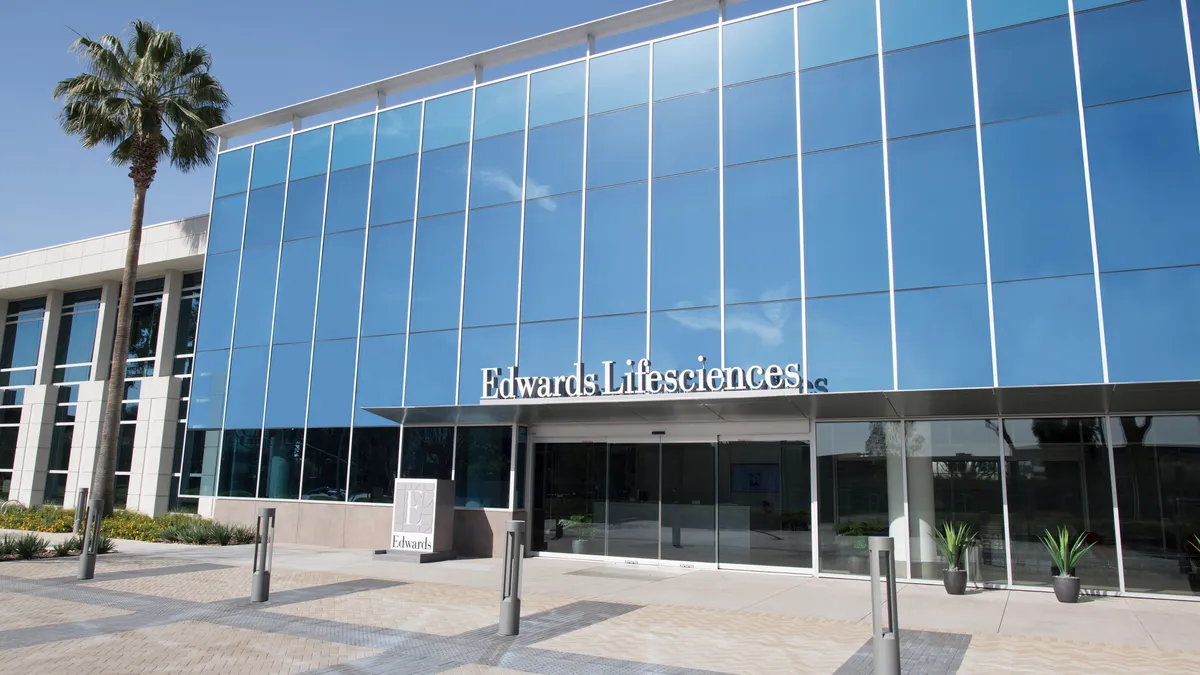Dive Brief:
- Transcatheter aortic valve replacement pioneer Edwards Lifesciences announced investments in two separate companies developing transcatheter devices to treat structural heart disease.
- Edwards said Monday it has invested $35 million for the exclusive right to acquire Corvia Medical, maker of a transcatheter device designed to slow the progression of heart failure.
- Edwards also announced a deal to acquire certain assets of Mitralign, a company developing a transcatheter annuloplasty system to treat mitral and tricuspid regurgitation.
Dive Insight:
The investments give Edwards the opportunity to get in on the ground floor in the development of new technologies within the broader category of structural heart disease, where CEO Michael Mussallem has said the company will remain focused.
Corvia's heart failure treatment, called the InterAtrial Shunt device, is designed to provide continuous dynamic decompression of the left atrium, which may reduce symptoms and slow the progression of heart failure. It is intended for patients with preserved and mid-range ejection fraction.
The Interatrial Shunt implant is deployed through a small opening in the atrial septum, forming a passage between the left and right atria that enables the left atrium to decompress at rest and during physical activity, with the aim of lowering left atrial pressure.
The device received CE Mark approval in Europe in 2016 and earlier this year gained a key reimbursement status in Germany. Edwards' investment gives it the option to acquire the privately held company at a later date.
Tewksbury, Massachusetts-based Corvia said it will use funds received in the transaction to complete its Reduce LAP-HF II pivotal trial for the device. The study is in the process of enrolling 608 patients with preserved and mid-range ejection fraction in the United States, European Union, Australia and Canada.
In a separate transaction, Edwards said it acquired certain assets of Mitralign, also based in Tewksbury. The assets include intellectual property and associated clinical and regulatory experience. Edwards has previously stated that it is going after the market for treatments to address mitral and tricuspid diseases, an area where patients are in need of better therapies.
The investments follow the roughly $100 million acquisition of CAS Medical Systems, which makes non-invasive technology for monitoring tissue oxygen levels in the brain, announced in February.
Edwards did not provide additional details on the latest transactions and said the two deals are not expected to have an impact on the company's 2019 financial guidance, which the company set at between $950 million and $1.01 billion for first quarter sales on a late January earnings call. The company is set to release data from its Partner 3 trial of its Sapien 3 valve at this weekend's American College of Cardiology conference.











